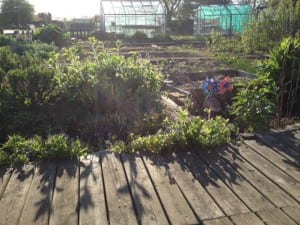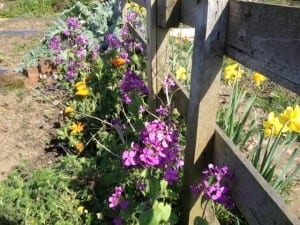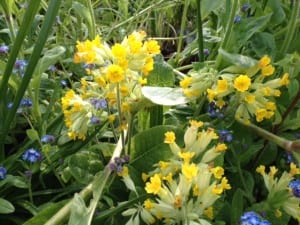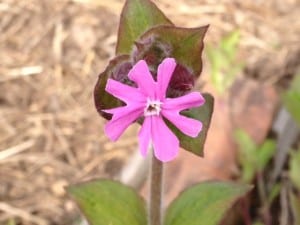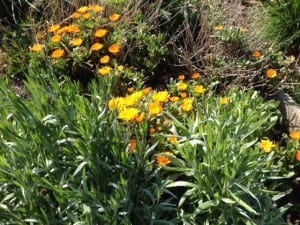Easter is a movable feast. Scratch the surface and older traditions connected with moon phases and the spring equinox soon emerge. Like Christmas and the winter solstice. I love Easter. Not for the choc-fest and crossed bun bonanza, but because it’s time to open up my allotment. I use the winter months for reading, writing, reflecting in firelight. During Easter, I’m unlocking the heavy metal gates again. Squared by a dual carriageway and back yards of terraced houses, I garden to the percussion of falling glass from the recycling plant and buzz of trains on the main line from Hull to London. If I stand on my the roof of my shed, I can see the bridge. This is my baseline.
Last year, my postmodern lens got a bit scratched. There were raised eyebrows, disparaging comments; it was lonely in my po-mo world. While colleagues were asking why I would want to go all postmodern in the first place, I was looking at its attention to diversity and difference and thinking why wouldn’t you? In particular, with educational technology where exclusive practice is rife, access parameters decreasing and digital divides widening (invisibly) every year.
Lyotard’s report on the condition of knowledge arrived in a blaze of cynicism and critique. There was outrage at Baudrillard’s suggestion the Gulf War didn’t happen. A lot of people enjoyed poking fun at postmodernism. Then it sort of vanished, Chomsky’s diatribe on po-mo’s polysyllabic meaningless echoing in symbolic ears. It was all a bit French but if Foucault were alive today, he’d be saying I told you so. Wikileaks?
Postmodernism introduced words like participatory and emancipatory into the research agenda, helped reveal hidden mechanisms of social control. The word ideology has become associated with political science but it’s wider and broader than economics. From ancient Greece, as most things are (if only they’d been less patriarchal and dropped their attitudes to disabled babies and slaves…) ideology is about ideas and ‘logos’ – which has a dozen definitions (in a postmodern way) but is fundamentally about communication.
So under the sun on my allotment, I’ve been pondering the short lifespan of the postmodern academic, thinking maybe it was too ambitious, took on too much. Denying grand narrative theories was always going to be risky. No winners or losers; a grudging draw at best. Then between the digging and backache, I read about the coexistence of ‘ontological realism‘ alongside ‘epistemological relativism‘ (the ivory towers of doctoral research) which was a bit like – postmodernism. Symbolic realms, the Real, Other, fluidity of language, a continual need to renegotiate meaning, the impossibility of establishing what Putnam called a God’s eye view all sounded familiar. Hello Critical Realism. Are you the acceptable academic face of postmodern theory for the 21st century?
My allotment is a treasure trove. It offers poetry and magic as much as sore muscles and splinters. It can be an analogy and metaphor for anything, not to mention my sanity and respite. Over the last year, grappling with my ontology and epistemology, as befits a PhD, it all got easier when I considered its permanence. My allotment exists regardless of my presence. It isn’t an abstraction. I don’t bring it into reality. It just is. But when I show it to others, they all see it differently. It has an ontological realism but is epistemologically relative; people apply their own meaning. Beautiful or boring. Relaxation or hard labour. Envy or disinterest. There is no fixed way of seeing it. Take my allotment neighbour. Stan has a plan. He grows in straight lines, measures, records, has neat paths and the frame he’s built for his chrysanthemums is bigger than our greenhouses put together. We have the same 250 metres square, touch the same earth, feel the same rain. We share an ontology but epistemologically we are worlds apart.
I like how – when you’re reading – certain words jump off the page. This is resonance. Jung would call it meaningful synchronicity. The process of writing a thesis is – I think – about finding synchronicity, joining up the relevant dots to form a new way of seeing, a different way of knowing. My phd will be a tiny sand-grain of knowledge with my name on it. In the meantime, my allotment waits…
Chapter One: What is Realism and Why Should Qualitative Researchers Care? from A Realist Approach for Qualitative Research by Joseph A. Maxwell (2012) Sage http://www.uk.sagepub.com/upm-data/44131_1.pdf
